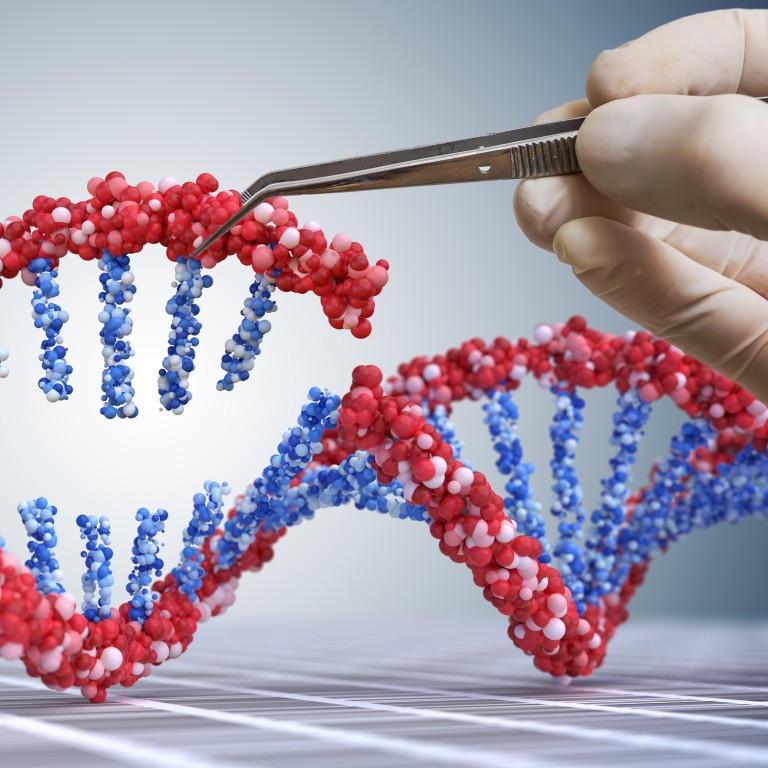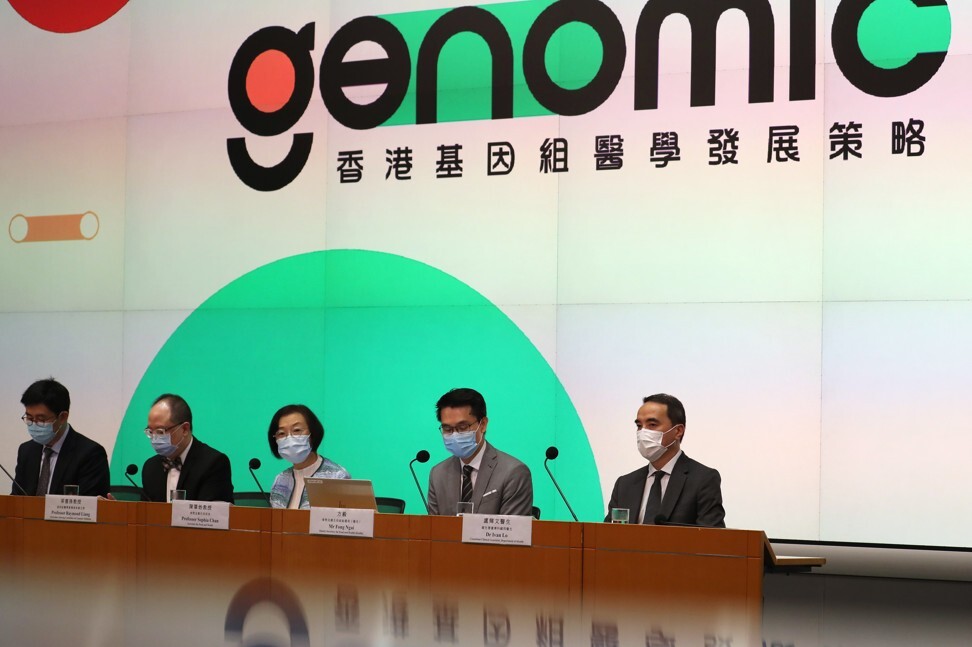
Hong Kong lays out blueprint for future of genomic medicine
- Steering committee gives eight recommendations on way forward for field that is becoming a critical aspect of health care
- It calls for better supervision of tests and says people should not be required to submit test results to insurers to obtain coverage
Hong Kong’s first blueprint for developing genomic medicine has called for better regulation of how genetic information is used and tests are handled, especially ones people carry out themselves and can wrongly interpret.
The report – which the government released on Thursday – laid out eight ways the city can speed up the development of the field, which has become increasingly important in determining susceptibility to disease and identifying treatment options for those with uncommon disorders.
Recommendations from the government’s steering committee on genomic medicine, which drafted the report, included the launch of the Hong Kong Genome Project, which would begin recruiting people in the middle of next year to sequence genomes of 20,000 cases in the hope of better diagnosing rare illnesses and aid cancer treatment.
Some cases might involve one person as well as several family members. The city should also establish a network of biobanks, it said, as well as training talent.

The committee called for better regulation of the use of genetic data for insurance through the industry’s code of practice, as well as stepping up oversight of health-related genetic tests, especially ones people can buy directly.
“A considerable number of patients and their family members expressed worry about the impact of undertaking genetic tests on their eligibility … of getting insurance coverage,” the committee said in the report.
Fong Ngai, deputy secretary for food and health who is responsible for the development of genomic medicine for the government, said: “According to international trends, there should be restrictions on the use of genetic information for insurance purposes as a matter of principle.”
Project to decode DNA of patients paves way for revolutionary new treatments
The committee said insurers should not require people to take a genetic test to obtain coverage, nor ask for test results that had been used for research purposes. But a test used for diagnosis should be disclosed to the companies.
Health minister Professor Sophia Chan Siu-chee said regulating such requirements through legislation was not necessary at the current stage. “If there is anything that is not working well with the insurance industry … we would not rule out in the future that we would consider legislation,” she said.
The recommendations were echoed in a guideline on the use of genetic test results released by the Hong Kong Federation of Insurers on Thursday.
The specification, which takes effect next month, said insurance companies might only ask for predictive genetic test results when people applied for life insurance with coverage of more than HK$5 million (US$645,000) or critical illness plans with protection greater than HK$1 million, and when they had one of six specific conditions.
The federation claimed that more than 95 per cent of policy holders would not need to submit test results.
The committee suggested that health-related genetic tests should include clear information on their validity and explanations from medical professionals before and after the tests.
A government source said genetic tests used for medical diagnosis or research were already required by the law to be handled by medical laboratory technologists or doctors. But regulation was lacking for tests related to health but not for the use of diagnosing a disease, such as kits to check a person’s risk of cancer.
Hong Kong researchers develop early-stage Alzheimer’s detection
While the source said “no concrete plans” had been made on how to regulate such products, the report stated possible options in the future included regulating test kits as medical devices.
Dr Brian Chung Hon-yin, a clinical geneticist who was also a member of the Working Group on Hong Kong Genome Project, said he had encountered patients who sought medical help after taking a self-test informing them they suffered a specific disease, but were later cleared after a detailed examination by a doctor.
“Patients underwent great anxiety during the process,” Chung said.
Help us understand what you are interested in so that we can improve SCMP and provide a better experience for you. We would like to invite you to take this five-minute survey on how you engage with SCMP and the news.

